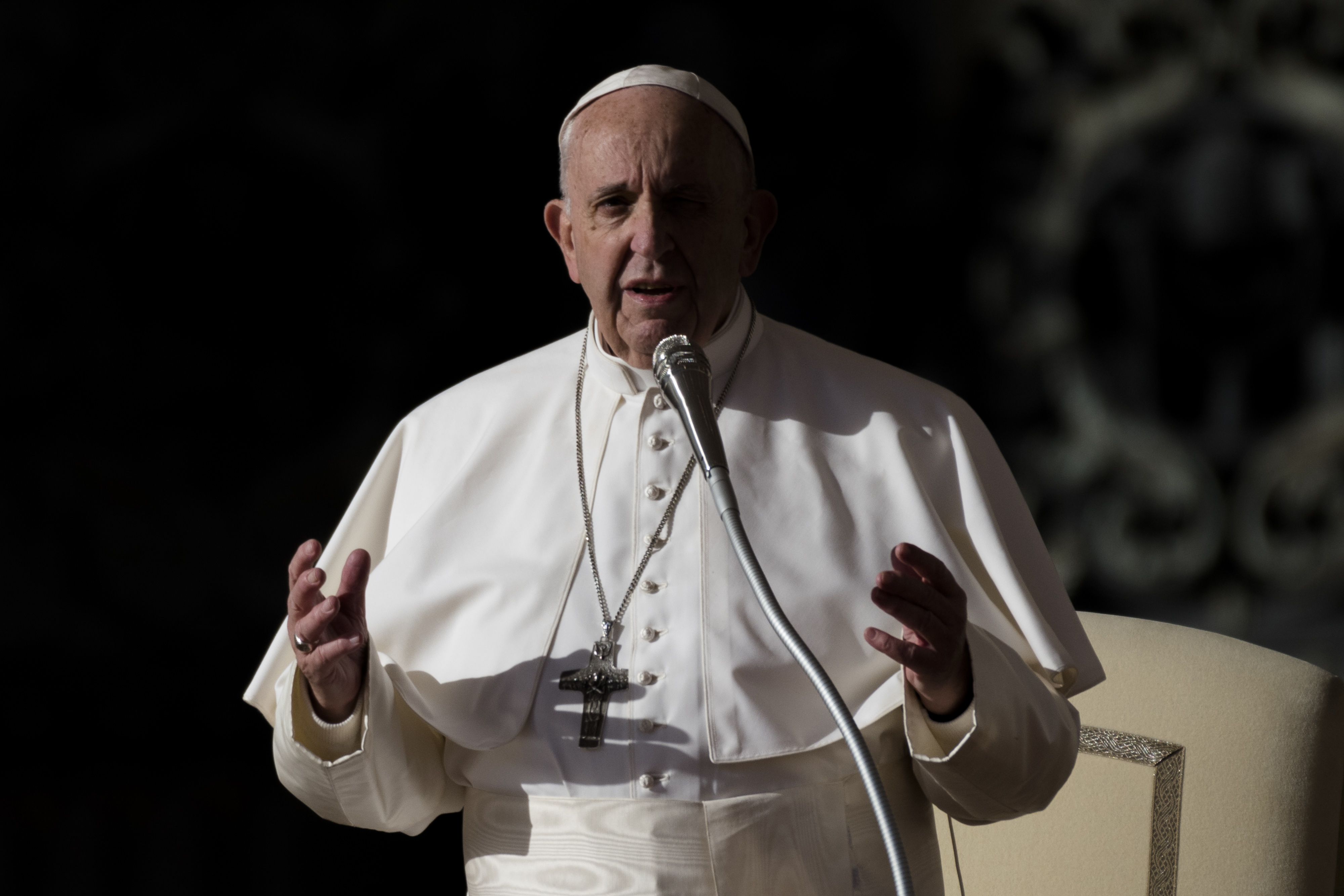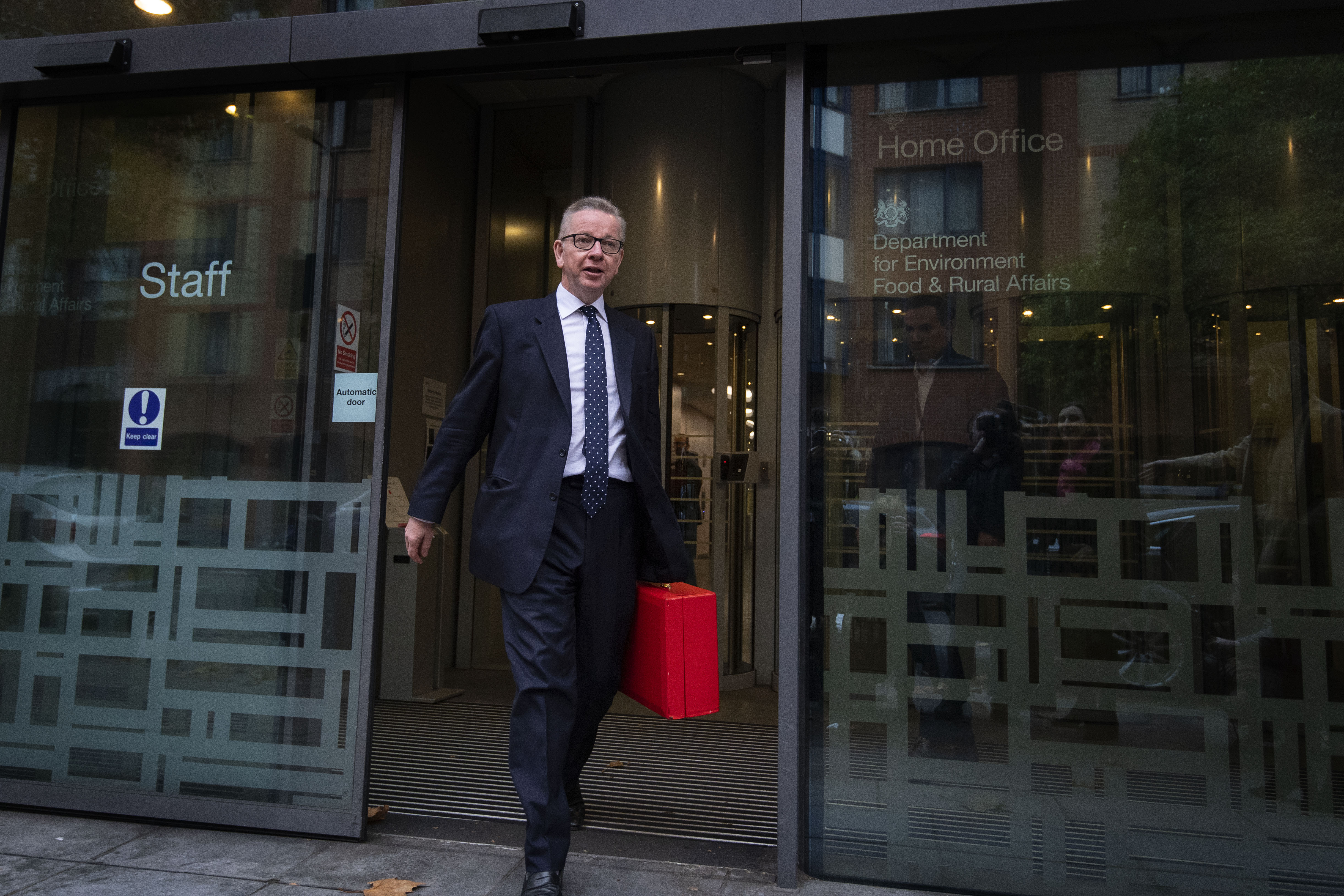Theresa May’s environment minister Michael Gove last night (Thursday) took time out from the government’s Brexit deliberations to address the London-based Christian ecumenical think tank Theos on the question of food and the environment. “When will there be a harvest for the world?” was the question he addressed. In other words, when will creation itself get a look in, as we continue to exploit our common home to feed ourselves.
In addressing these issues Gove took his lead from faith leaders and – most extensively – from Pope Francis, spending 2,000 words of his 5,700 word lecture on Francis’ encyclical Laudato si’.
Christians, he affirmed with Francis, are called to remember their rightful place within Creation – and the vast web of life it created – and their responsibility to protect and defend it.
“What kind of world do we want to leave to those who come after us, to children who are now growing up?” Gove asked.
“It’s a question that runs through [the Government’s] 25 Year Environment Plan … It’s also a theme of one of the most comprehensive and thoughtful expositions of Christian thinking on the environment – Laudato si’”.
At the heart of the encyclical, Gove said, are the “critical lessons” that “each community can take from the bounty of the earth whatever it needs for abundant life”. However, “the Harvest for the World must be a sustainable one – we have a duty to protect the planet and ensure its fruitful abundance for coming generations.”
Added to this is the “guiding principle” of the need to look after our poor. But for Francis, Gove points out, “the poor” does not only refer to people but also to the Earth itself: “And the Earth, burdened and laid waste, is – [Francis] believes – among the most abandoned and maltreated of our poor. It is beginning to look more and more like an immense rubbish heap … Instead of a legacy of a better environment for future generations, we threaten to leave them only rubble, deserts and refuse.”
A true ecological approach, Gove says with Francis, “must always become a social approach. It must integrate questions of social justice in debates on the environment, so as to hear both the cry of the earth and the cry of the poor.”
Francis’ insistence that we must “combat poverty and restore dignity to the underprivileged at the same time as protecting nature”, is, Gove says, a “fundamental insight”.
Gove did not avoid the question of how many people the planet can support, but his answer, in the lecture at least, was in line with Catholic thinking. There are “more than seven billion people on this planet – and current expectations suggest that this number will rise to at least ten billion well before my teenage children become my age,” he pointed out. “Population growth on this scale – and everything that goes with it – poses particular challenges – not least for our earth.”
However, he was not “a bleakly pessimistic Malthusian who believes that there is a precise mathematical limit to how much population can grow”.
“I believe not just that every life is precious and every soul unique but many of those who will be born in the years ahead will prove capable of developing the breakthroughs which change our expectations of what is possible,” he insisted.
He was “profoundly conscious that the way in which we have been growing, in population terms, and economically, has imposed costs and strains on our planet that require us also to have more than just a blithe faith that we can carry on as before and all will be well”. Indeed, he feared “we are near a tipping point”. Nevertheless, he had reasons to believe that humanity had the resources – material, moral, and spiritual, to meet this challenge.



 Loading ...
Loading ...